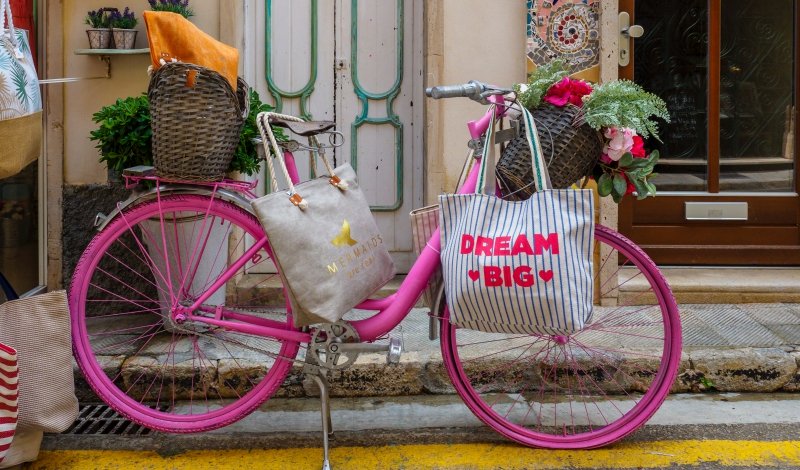
The space between two powerful words, wanting and willingness, is like a light beam, a fine balance between acceptance and action. Without a willingness to engage in effective methods to reduce cravings, negative effects, and anxiety, individuals in recovery will falter. Wanting is like wishing without a pebble to toss into the fountain of hopes and dreams.
Once you stand before the fountain, you realize how much you want to throw in the pebble, and alas, you are standing empty-handed. Even if someone offers you a coin or a token to toss into the bubbling water, the coin lands to the bottom without any return.
To believe and to achieve recovery, one has to heal from the inside. The inside doesn’t heal by itself. Wanting to heal isn’t the same as adding nutrients into the body or feeding oneself with nutritious foods to maintain health.
Tools are lifelong gifts to take with you as you journey past the start of recovery into the vast world outside.
Wanting recovery
To want something is to wish. Think about the time you were a little kiddo and wanted a new bike. Your friends all got new bikes and you had your brother’s old worn out banana seat bike. Your parents knew you wanted one because you begged for the fancy bike you saw in the Sears catalog at Christmas time, every single day.
You circled it in red ink, cut it out, and put it on your mirror. Every chance you got, you brought up how awesome it would be to ride down the street; or feeling the wind in your hair on the new bike. The impact didn’t change your parent’s minds and you never got the new bike. Wanting recovery is much like wanting a new bike.
You put up recovery statements, you tell everyone you are sober, and you attend meetings. At the end of the day, though, you took medication (alcohol was an ingredient) for a cold (more than needed), your attendance at a meeting included no comments from you, and after your initial taping of statements to the bathroom mirror you never look at them again. You want to do these activities, you start them, but you do not engage at a heart level.
Image by Free-Photos from Pixabay
Willingness in Recovery
Go back to the bike story. Now, you are the little kiddo who wants a bike, but they know family money is tight right now. Your older brother works so he bought a new bike and gave you his so you didn’t have to ride a tiny trike any more. You know your friends all have new bikes, and so does your brother, so you set a goal to get one.
You purposely cut out the picture of the bright pink bike and put it up on the mirror in your bedroom. Next to it is a breakdown of how much money you need every week to get the bike. Then, you ask your parents, aunts, uncles, and neighbors to support your goals. You plan on helping them take their trash out, wash the car, sweep the porches, or rake leaves. The neighbors give you a dollar here or there, and your parents start giving you dimes, nickels, or quarters when you help a little extra around the house. The spare change becomes your income toward your goal.
Soon, you have the amount needed and you go to your parents. You tell them you were willing to do the work and now, you have the exact amount needed for the new bike. It took you six months, but every penny was saved. Your parents celebrate by driving you to the store.
When you go to the bike rack, the bike you wanted isn’t there. You feel down and sad, but you notice a new bike on sale. You can purchase the newer model and you will have money left over for a helmet. Excitement shows up and your parents are excited about your choice.
You were willing to do the work. You did the extra steps and received more for your efforts than had you only wanted the new bike.
The space between two powerful words, wanting and willingness, is like a light beam, a fine balance between acceptance and action.
Recovery treatment
The tools provided in treatment are geared to help you move through recovery with some solid foundations. Tools are lifelong gifts to take with you as you journey past the start of recovery into the vast world outside, where recovery isn’t guaranteed. The dangers surrounding you once you leave treatment start immediately. They do not wait. Recovery tools are there, practiced in a safe environment so they become automatic.
Treatment is like a reboot, a reset so focus and growth set roots to change.
For the tools to work, you have to be willing to implement them in good times as well as in tough times. The more you practice when life is easy or safe, the easier it is for your brain to recall them and put them to use when life is challenging. The willingness to embrace tools as a lifelong endeavor creates a toolbox of refuge. Your brain will remember when you need the ideas the most.
Like the automatic recall the brain uses to remember memories, both good and bad, it also remembers when you used substances or activities, the reward aspect, and will resort to the quickest way possible to get the desired ‘survival effect.’ The brain doesn’t care if the substance or activity is deadly to a life of recovery. It searches in seconds, even milliseconds, to find the most recent experience in the memory banks, connects them to the hijacked amygdala and you are off to the races.
We use the same automatic recall to stop the cycle of addiction by practicing new ways to cope. The tools you learn in treatment are practiced often. The more you practice them, the more automatic they become, and the stronger your brain’s search for a healthy alternative to comfort and courage in recovery.

Photo by Peter Jan Rijpkema on Unsplash
Words of wisdom
Gabor Maté shares a definition of addiction which continues to ring true. In his book, In The Realm of Hungry Ghosts, he states,
Our addictions attach themselves to our innermost person. They become the all-focused directive of life. Relationships fade away, but addiction sticks. When we want to change, we have to be willing to let go of the things which destroyed us, our relationships and our careers, and grab onto the tools to help us move away from addiction and toward a life of sobriety from all addictive behaviors.
Instead of complaining about the nagging cravings and blaming use on triggers by people, places, or things, check out the underlying motive. Were you willing to step away from any of the relationships, places, and items which kept you tied to your addiction?
We can trace our steps and find out where we slipped way before the actual activity of using. Our brains are quicker than we think, and they definitely have to be trained in a newfound focus.
The willingness to embrace tools as a lifelong endeavor creates a toolbox of refuge.
You can do this if you are willing to open the door, step through, and ask for help. And then, you have to be willing to take the want-to-change spirit and move toward recovery every single day like the holiday shopping catalog where you found the bike.
—
This post was previously published on Assemblage and is republished here with permission from the author.
—
***
If you believe in the work we are doing here at The Good Men Project and want to join our calls on a regular basis, please join us as a Premium Member, today.
All Premium Members get to view The Good Men Project with NO ADS.
Need more info? A complete list of benefits is here.
—
Photo credit: Unsplash

